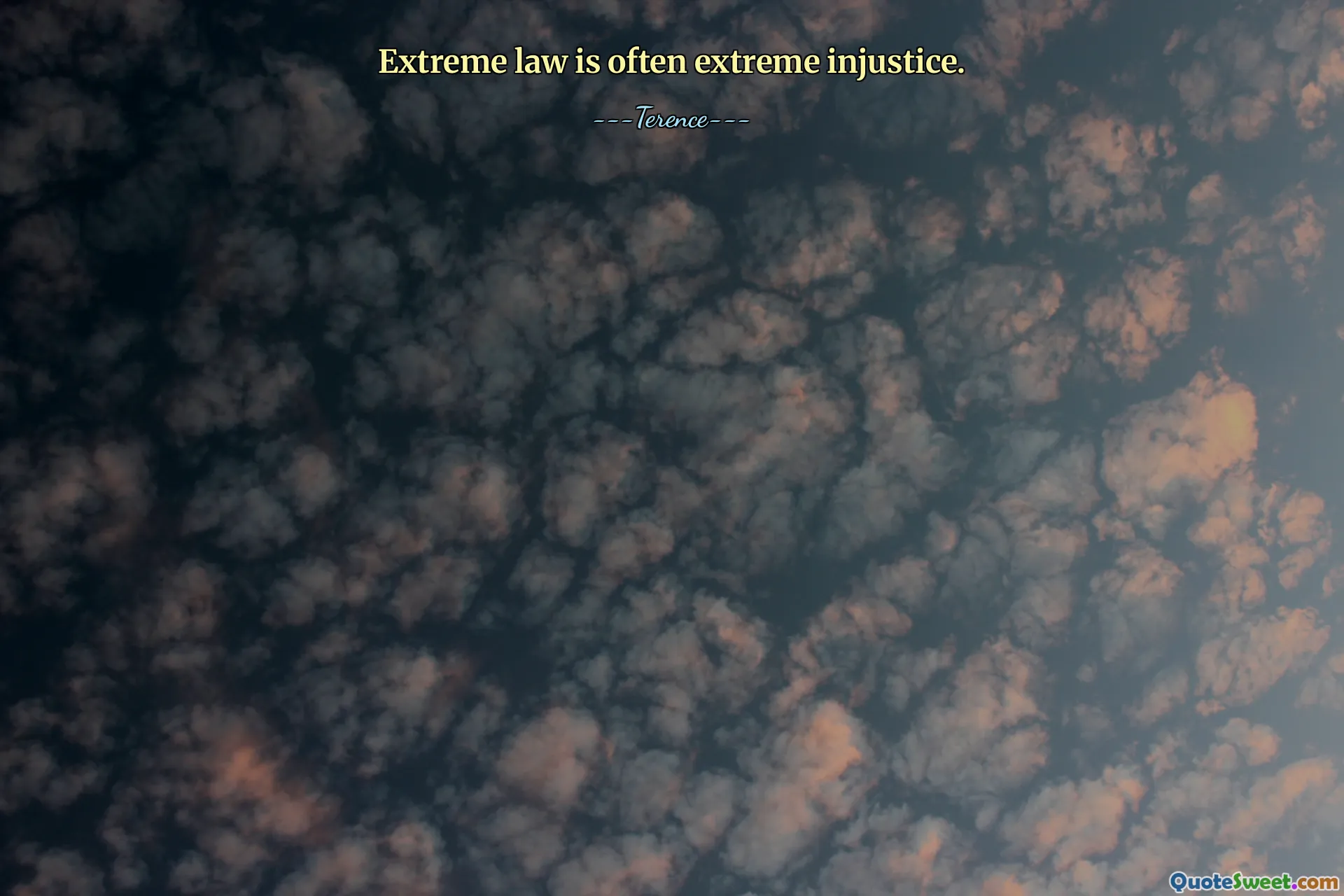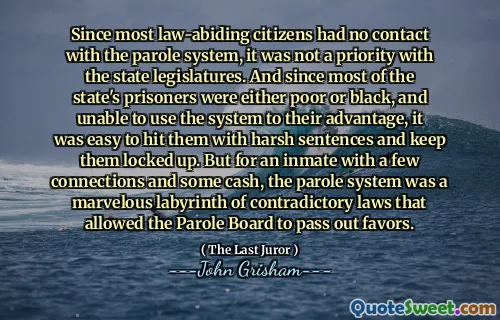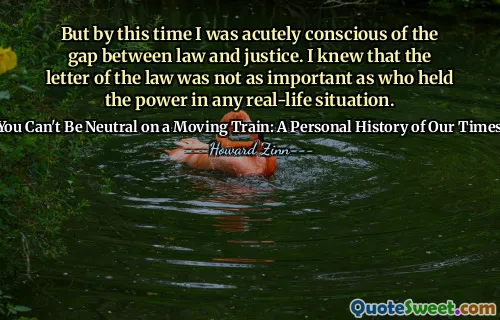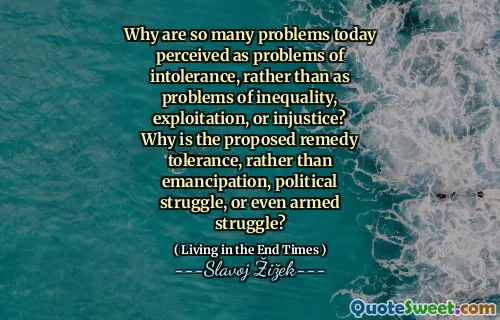
Extreme law is often extreme injustice.
This quote by Terence highlights a fundamental paradox within legal and societal systems. Laws are traditionally designed to promote order, justice, and stability within a community. However, when laws become excessively harsh, rigid, or enforced without reflection on individual circumstances, they can lead to outcomes that are inherently unjust. The phrase suggests that an overly strict or uncompromising application of law may produce situations where the penalty or consequence far exceeds the original wrongful act, thus violating the very principles of fairness and equity they are meant to uphold. In real-world contexts, this can be observed in punitive legal systems where draconian punishments are meted out without consideration of intent, remorse, or rehabilitation potential. Such instances often cause societal harm by fostering resentment, inequality, and a loss of faith in justice institutions. Conversely, it also prompts a reflection on the importance of balancing law enforcement with compassion and wisdom. A just legal system must not only uphold laws but also interpret and enforce them in ways that consider human complexity and moral nuance. As societies evolve, the challenge remains to reform laws continually so they serve justice rather than become tools of oppression under the guise of legality. Understanding the dangers of extreme legal measures underscores the need for a humane, flexible approach that prioritizes ethical considerations and the dignity of individuals over mere adherence to rules. The quote reminds us that law, when taken to the extreme, can deviate from its fundamental purpose of serving justice and instead become an instrument of injustice itself.









